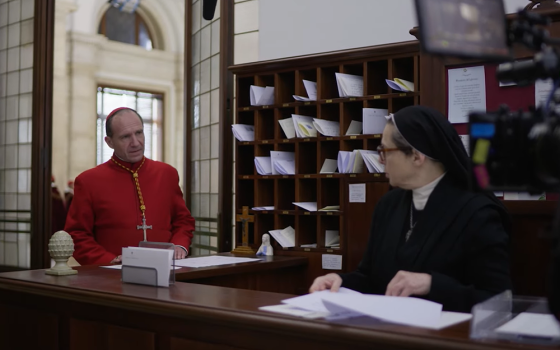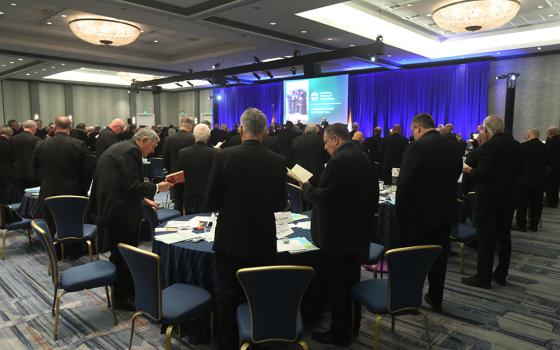Cardinal Pietro Parolin, Vatican secretary of state, addresses the 77th session of the United Nations General Assembly at U.N. headquarters in New York City Sept. 24, 2022. (CNS photo/Eduardo Munoz, Reuters)
Russian President Vladimir Putin's warnings that he would consider using nuclear weapons is a "repugnant threat" that shows the urgency of moving to eliminate nuclear weapons from arsenals around the world, said Cardinal Pietro Parolin, Vatican secretary of state.
Putin's threat "illustrates just how close the world has come to the abyss of nuclear war. This looming threat, with devastating implications for all humanity, demonstrates that 'nuclear weapons are a costly and dangerous liability,' which undermines international security," the cardinal said Sept. 26 at the U.N. high-level meeting to commemorate the International Day for the Total Elimination of Nuclear Weapons.
In a speech Sept. 21, Putin said, "I want to remind you that our country also has various means of destruction ... and when the territorial integrity of our country is threatened, to protect Russia and our people, we will certainly use all the means at our disposal."
"It's not a bluff," he said during his televised address, according to the Associated Press.
Noting Pope Francis' insistence that "the ultimate goal of the total elimination of nuclear weapons becomes both a challenge and a moral and humanitarian imperative," Parolin told his U.N. audience that nations possessing nuclear weapons seem to be "increasing their reliance on nuclear deterrence" rather than moving toward disarmament.
And, on an international stage, the cardinal said, little progress is being made to encourage more countries to sign commitments under the terms of the Nuclear Non-Proliferation Treaty.
"Achieving the total elimination of nuclear weapons requires a response that is 'collective and concerted, based on mutual trust' and considers the catastrophic humanitarian and environmental consequences of nuclear use," the cardinal said, quoting Francis.
"As long as nuclear weapons exist," he added, "we cannot rule out the possibility of their use, which threatens 'any possible future for our common home' as well as humankind's very existence."
Advertisement







